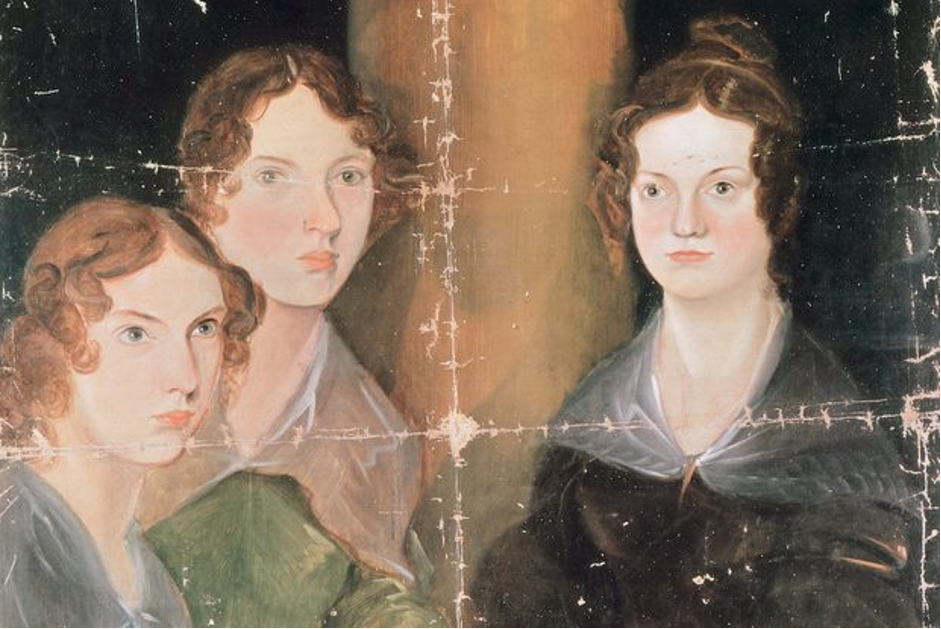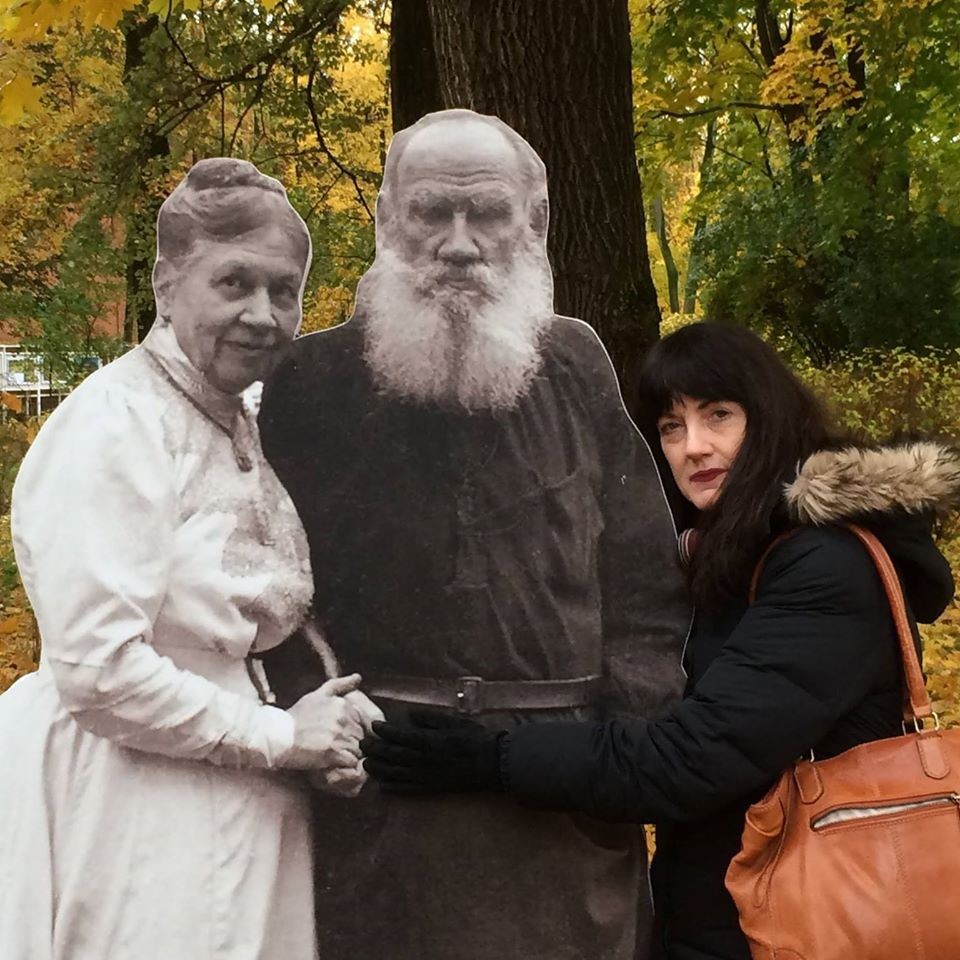A schoolroom, North Yorkshire, 1840
I begged Charlotte to teach alone today; I cannot bear the girls’ scathing eyes. She tells me how she too detests this post, how she cares little for the children, how they care not at all for her.
But to my relief she agreed.
She reminds me that her heart was in this project once. She wanted them to learn, to understand, to appreciate the tiny world in which they live. And then she would move on and introduce them to the universe.
My mind wanders; the air is glacial in the vestibule.
‘I am sorry, sister, what did you say?’ I ask as she pats my hand. (Reluctantly I slide away from my thoughts. Give me Gondola, now, give me moors, give me…) Through the window aggrieved clouds glare at me then move on, venturing swiftly north. Leaving the sky grizzled and hoary, an unhappy landlady.
‘I think we should consider educating them on the history of the Moors of Turkey,’ says Charlotte.
‘I do not think the vicar or the head-teacher will allow it.’
‘No matter. It is imperative these children begin to learn more about the world! They are learning religion from the vicar. Can we not edify them on the ways of great scholars? Great writers? The Greeks, Romans? The Islamic prophet? Shakespeare?’
‘Be careful, sister; you are becoming agitated.’
‘I know I should remember that these girls are simply destined to be…governesses, if they are lucky. As we too are destined if we do not succeed in this position.’
‘Ah Charlotte! I am not at all sanguine about life as a governess.’ I spit the word, then turn; she has seen my face blotched scarlet too often. ‘Or a teacher.’
She sighs. ‘Calm, Emily, calm. What else are we to be if not teachers? Do you really want to be a maid or farmhand? At least here we are in a church school, not at the mercy of a fickle master in his mansion, subject to his laws and lies and his wayward children. Like poor Anne. At least we can –’
‘Please! We’ve whispered over this a hundred times! And look – it’s time for the next lesson. Go on, I’ll listen. I don’t feel well enough today to educate these ill-disciplined monkeys.’
I seat myself in the cold classroom, watch her stand, faintly trembling, before their dull faces. Yes, they are cold, the room is unfriendly and uninviting and devoid of colour. Dampness thickens the morose air, dank mould embroiders the walls, the chairs and stilted desks are painful – but why are the girls so hostile, so dour? Surely the indigo ink, the creaminess of the paper, are enough to help them fly away, make-believe, bury themselves naked and unashamed in a positive utopia.
Charlotte is fervent when lecturing on ancient history. She quotes poets, becomes aflame in her rendition of philosophers aiming for a perfect world. Slowly the girls perk up, their brows change shape and their mouths change shape. I myself am taken away – away from drudgery, bad porridge, cold vicars and blinkered, provincial farmers. Metamorphosis is slow but steady, perpetual. I see a world before me of diplomatic governments, Cicero-inspired democracies, equality of all colour, creed and religion. And gender. The colours are rich and vibrant – a kaleidoscope of saffron and topaz, cobalt and bronze, emerald, vermilion, ruby. An opiate of sorts; at least for a spell.
I open my eyes; Charlotte’s tiny body vibrates as she outlines her perfect earth. The girls are smitten when she talks of them becoming writers or artists, doctors or lawyers, leaders; of all people being understanding; of even the ugly being loved.
How strange that we are all swooning! I too no longer feel so afraid. My sister has strengthened me again, crushed my black memories of Napoleon and Richard III, of slavery and the crusaders, of the mob controlling the guillotine, executing their queen, themselves. My thoughts are awash, disordered, I know, but I would rather be thinking of the beauty of being than its miseries, its privations.
‘Miss Charlotte, could there really be a world like that?’ one girl cries out hopefully.
The dysphoria has melted, the room is warmer, more alive. Yes, I believe it, from this teacher my sister: fairness, kindness, equality will result in a happier world.
Oh, that it would be so simple!
‘Madame, you are deluded!’ the voice roars from the door. ‘You speak like one of those immoral French revolutionaries! How dare you teach children such nonsense!
It is amazing how quickly the statue cracks, the rifts spread, the splinters run. Until it can stand no more and falls, a mess of clefts and crevasses. No more a brilliant source of shine, now just uneven blocks of fractured stone. The room is of course as it was this morning – a cheerless space, littered with chilly draughts and uncompromisingly coarse wood. As grey as death. The girls are unhealthy, cheaply dressed, coughing – one emits red spots as she pushes her handkerchief against her wet mouth. All look sullen, indifferent again – or did they not change at all? Was it just my imagination? My hope?
My sister is her tiny terrified self, her face bent low, her grey eyes swollen and near to tears. ‘I was just…I simply meant…’ But naturally she can’t explain – neither of us can – such is our persecution.
‘Get out of here at once!’ the vicar demands. It is late afternoon and his shadow is demonic, dark yet incandescent. Charlotte withers beside him, a cipher no less. God help me feeling so.
We both hurriedly collect our books, begin to leave. Charlotte pauses. ‘Poetry,’ she whispers. ‘And…and beauty. If they could just learn to appreciate that…Then the world…’ But she is croaking, shrinking further.
Outside we clutch at our skirts and bonnets in the wind as we head to the boarding house. ‘Why must everything be so black and white?’ I ask.
‘It isn’t, it isn’t,’ she moans. ‘I must pray, seek forgiveness.’
But, instead, as we get inside she drags the chair and table over to the cosy fire (waiting kindly for us; thank the Lord for small mercies!), pulls out her papers and, as I light a candle, she takes a deep breath and says, ‘Write, Emily. We can find other ways to delude the world.’
And so I do.

